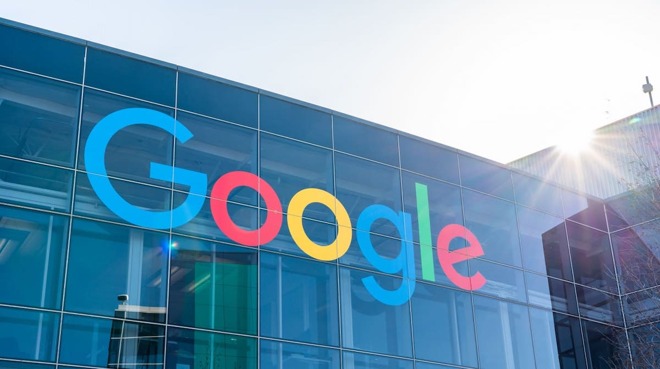States file third antitrust lawsuit against Google focused on search
A group of more than 30 states have filed a third antitrust lawsuit against Google, this time focusing on the design of the company's search engine and its tactics to maintain market dominance.

Credit: Getty Images
The complaint, lodged in the D.C. District Court on Thursday, accuses Google's of anticompetitive behavior with its search engine business, the New York Times reported. That includes allegedly designing the search engine in a way that pushes out smaller, more specialized rivals.
Along with downplaying third-party websites, the state prosecutors also accuse Google of using exclusive deals -- like the one with Apple -- to prioritize its search engine over rivals like DuckDuckGo.
Those suppressive tactics have allowed Google to achieve its nearly 90% market dominance in search, making it impossible for smaller competitors to grow into serious threats, the lawsuit claims.
All in all, 38 states signed onto the bipartisan complaint, which was led by Colorado Attorney General Phil Weiser and Nebraska Attorney General Doug Peterson. Other states include New York, Utah, Alaska, and Iowa.
The lawsuit comes on the heels of a separate complaint that focused on Google's advertising technology business. It also follows a Department of Justice lawsuit, also centered around search, that was levied in October.
There has been increasing scrutiny of technology giants in recent years, both in the U.S. and abroad. On Dec. 9, nearly every state in the U.S. and the FTC filed two separate lawsuits accusing Facebook of anti-competitive behavior.
Earlier in 2020, the U.S. House Judiciary Committee completed a yearlong investigation into the market power of Apple, Amazon, Facebook, and Google. The results of that investigation, released in an October report, recommended sweeping changes to antitrust law.

Credit: Getty Images
The complaint, lodged in the D.C. District Court on Thursday, accuses Google's of anticompetitive behavior with its search engine business, the New York Times reported. That includes allegedly designing the search engine in a way that pushes out smaller, more specialized rivals.
Along with downplaying third-party websites, the state prosecutors also accuse Google of using exclusive deals -- like the one with Apple -- to prioritize its search engine over rivals like DuckDuckGo.
Those suppressive tactics have allowed Google to achieve its nearly 90% market dominance in search, making it impossible for smaller competitors to grow into serious threats, the lawsuit claims.
All in all, 38 states signed onto the bipartisan complaint, which was led by Colorado Attorney General Phil Weiser and Nebraska Attorney General Doug Peterson. Other states include New York, Utah, Alaska, and Iowa.
The lawsuit comes on the heels of a separate complaint that focused on Google's advertising technology business. It also follows a Department of Justice lawsuit, also centered around search, that was levied in October.
There has been increasing scrutiny of technology giants in recent years, both in the U.S. and abroad. On Dec. 9, nearly every state in the U.S. and the FTC filed two separate lawsuits accusing Facebook of anti-competitive behavior.
Earlier in 2020, the U.S. House Judiciary Committee completed a yearlong investigation into the market power of Apple, Amazon, Facebook, and Google. The results of that investigation, released in an October report, recommended sweeping changes to antitrust law.

Comments
Does that make any sense? Is it possible? Is it already being done and I have no clue what I’m blathering on about?
"The nine most terrifying words in the English language are: I'm from the Government, and I'm here to help."
—Ronald Reagan
I'm not saying that copyright law is up to date with technology. I may be inclined to agree to changes in copyright laws to allow indexing like Google does. But the way I read copyright laws now, Google is breaking the letter and spirit of the law.
I'm not American, so the following doesn't apply to me personally, here's what the US Constitution says:
And here's what US Federal Law says about infringement: (it's probably similar in most countries)
And I think it's obvious that when Google reproduces other websites' information in their search results, they are infringing copyright. Even without putting ads on the result, they are violating that law. When Google told me that Lee Harvey Oswald killed John F Kennedy, they robbed HISTORY.COM from the ad revenue that I would have generated if I had clicked on the search result myself. And yet I have never heard a single person or read a single website that complains about this behaviour, either by Google or any other search engine. What Google is doing probably should be made legal, with restrictions, but right now it's illegal.
YES I know they get paid.
By and large I’m of the same opinion, but the other day I was searching for something that I didn’t know how to spell. All I really wanted was the Wikipedia page for it. Somehow I was accidentally using Google. At first I thought I was super high because I couldn’t understand why the Wikipedia page wasn’t popping right up (even though I was pretty sure I was misspelling the word (I was)). So I copy pasted my search into DDG (terrible name) and fourth hit, there it was. The Wikipedia page I wanted. I thought well maybe the results would be better if I were logged in to my Google account. Nope, same.